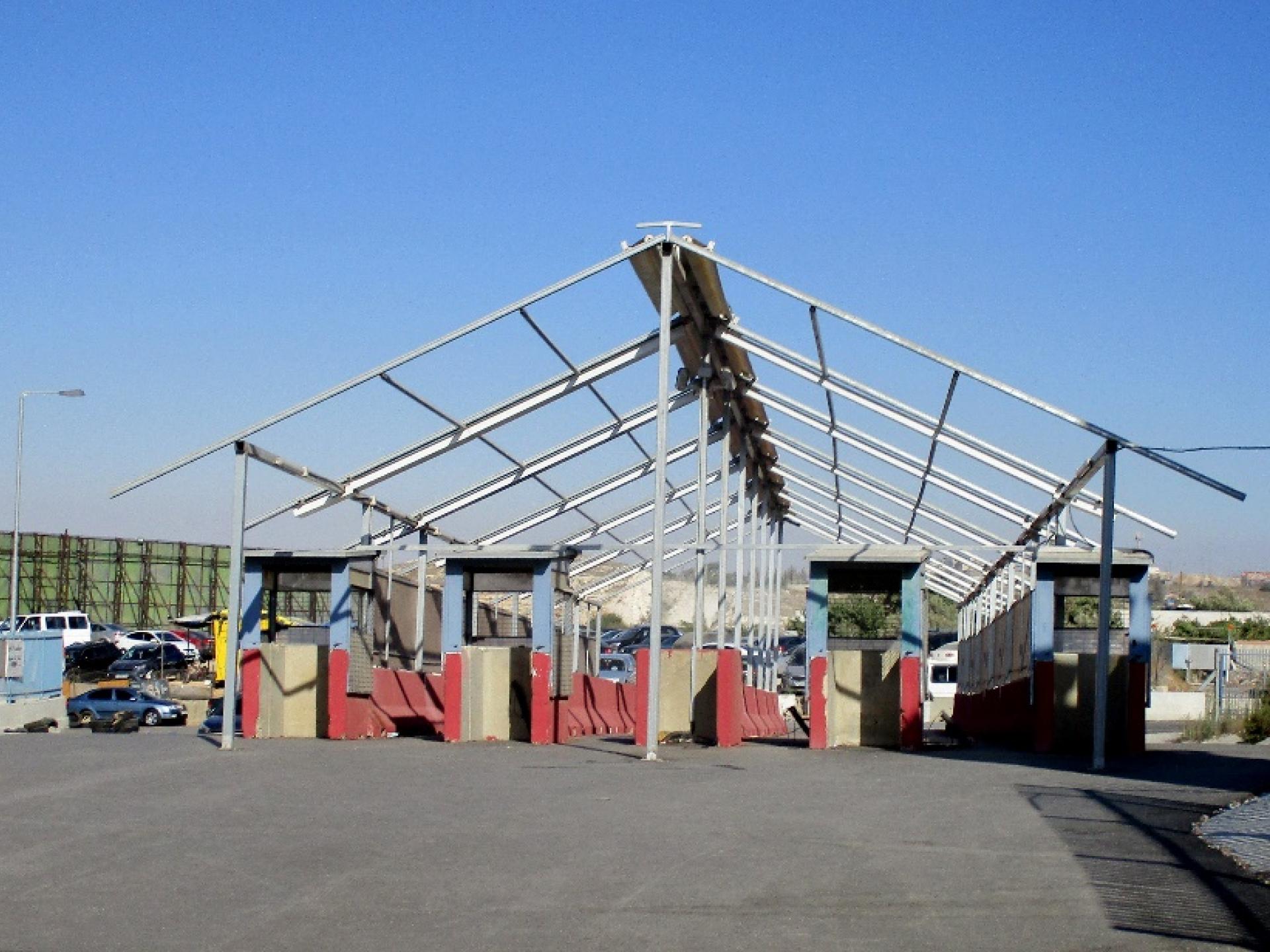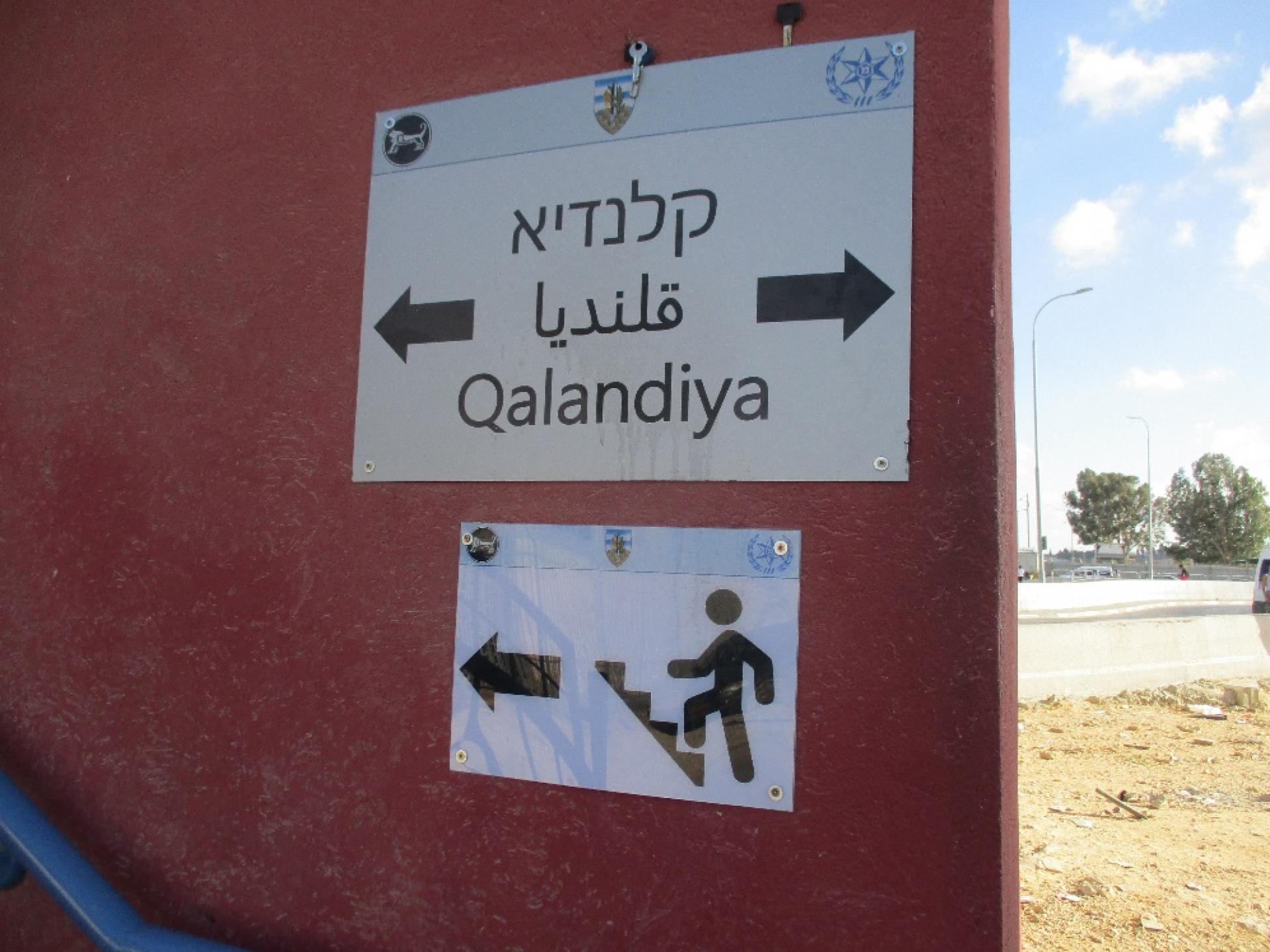Qalandiya - no money to buy food
The Ramadan month is hardly over and already seems not to have been at all, and already the hastened building is evident, of tracks for directing humans towards the next Ramadan.
Because Corona-virus contagion rose and because Abu Mazin declared general lockdown, I haven’t been here for a while. Coming back to Qalandiya is a bit like traveling in memopry, from place to place, from person to person, from child to child.
-One man warned me not to cross the checkpoint where cars are being inspected, it’s dangerous. Walk only along the bridge.
-One man praised Netanyahu for sending him and his wife and children money. True, not enough, but he send it…
-One man said that because of Corona patients, the village of Bani Na’im was closed, but he has his family there in the village, and he himself is here, sharing a rented apartment with migrant workers like himself in a refugee camp near Ramallah, earning his living from vending things at the checkpoint. Now there are no more patients in Bani Na’im and no more lockdown.
-One man said that the general lockdown declared by Abu Mazin, as a result of which Palestinian police were posted along main roads, lasted but a few days, for the Israeli army came and chased them away. Now there is lockdown only in Ramallah, on weekends.
At the refugee camp, in a friend’s grocery store, many of the shelves are empty. Not because we didn’t receive wares, he said, it’s because we haven’t ordered them.
The greatest problem for Palestinians is not the Corona virus. It’s the fact that there’s no money for food. The friend showed me his books, people who buy “on credit” and owe him 7,000 shekels. He doesn’t have the heart to remind them, for it’s not the memory that’s lacking, it’s work. They cannot pay “so I have no money to order wares”.
It was dark inside the shop. I thought it was because of my sun glasses, but it wasn’t. The dark afflicting this shop and others nearby and in fact the entire the refugee camp, is the power cut. Power cuts around here are not a rare sight. Electricity, like water, supposedly basic commodities, are not that obvious here. For water evidently there are black tanks on roof tops. But electricity cannot be sored in a tank. Whoever can afford it, buys a generator. Whoever can’t lives without electricity.
They said it’s been like this since 11 a.m. I left at 5 p.m. I don’t know when electricity was on again, but I do know that food in refrigerators and freezes gets spoiled and thrown away.
And one mustn’t forget that electricity in the West Bank is purchased at full price – if not more – from the Israeli Electricity Company. Go figure.
On my way back, facing a new sign, a man said to me: “They know how to write English and Arabic. Hebrew, not so well…” (The word Qalandiya is spelled wrong… in Hebrew).


